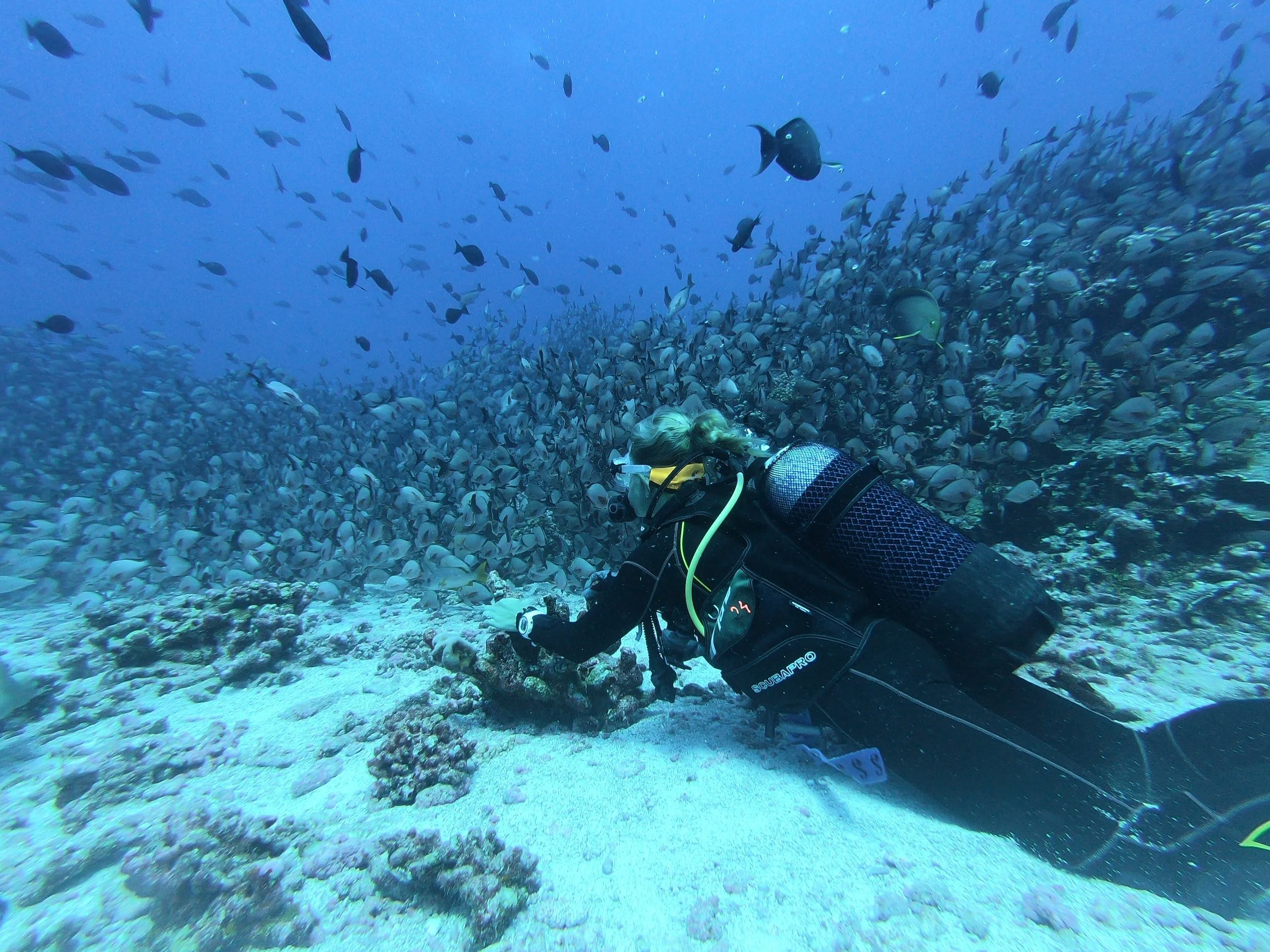Do I have to SCUBA dive to be a marine biologist?
A SCUBA diver swimming in a school of surgeonfish
Marine biologists are scientists who study the biology and ecology of marine organisms and their environments. Marine biology is a broad field that encompasses a wide range of topics, including marine ecosystems, marine conservation, and the impacts of human activities on the marine environment. Many marine biologists spend a significant amount of time conducting research in the field, and some of this research involves scuba diving. However, not all marine biologists are required to scuba dive, and there are many other ways in which they can conduct research and contribute to the field.
One of the primary ways in which marine biologists conduct research is through fieldwork, which involves studying marine organisms and their environments in their natural habitats. Fieldwork can take place in a variety of marine environments, including coral reefs, estuaries, and the open ocean. Some marine biologists may scuba dive in order to collect specimens, observe marine organisms, or gather data on their behaviors and interactions. However, scuba diving is not the only way in which marine biologists can conduct fieldwork. Other methods may include snorkeling, boating, and using specialized equipment such as remotely operated vehicles (ROVs) or submersibles.
In addition to fieldwork, marine biologists may also conduct research in the laboratory. Laboratory research may involve analyzing specimens or data collected from the field, conducting experiments, or using computer simulations to model marine systems. Laboratory research does not typically require scuba diving skills, and marine biologists who prefer to work in the laboratory may not need to scuba dive at all.
Marine biologists may also contribute to the field through education and outreach. They may work as professors or educators at universities or other institutions, teaching courses on marine biology or related subjects. They may also work as science communicators, sharing their research and knowledge with the public through writing, speaking, or media appearances. Education and outreach may not require scuba diving skills, and marine biologists who focus on these areas may not need to scuba dive at all.
It is important to note that scuba diving can be a useful tool for marine biologists, and many marine biologists choose to become certified divers in order to access certain research sites or to gather certain types of data. However, scuba diving also has certain risks and challenges, and it is not necessary for all marine biologists to scuba dive in order to be successful in the field.
For example, some marine biologists may prefer to work in shallow water environments that can be easily accessed from the surface, such as intertidal zones or estuaries. These environments may not require scuba diving skills, and marine biologists who prefer to work in these areas may not need to scuba dive at all.
Similarly, some marine biologists may prefer to work on projects that do not require direct observations or data collection from marine organisms. For example, they may study the impacts of human activities on marine ecosystems through remote sensing techniques or by analyzing data from satellite imagery. These types of projects may not require scuba diving skills, and marine biologists who prefer to work on these types of projects may not need to scuba dive at all.
Finally, it is important to note that not all marine biologists are researchers. Many marine biologists work in other areas of the field, such as conservation, resource management, or policy. These careers may not require scuba diving skills, and marine biologists who work in these areas may not need to scuba dive at all.
In conclusion, while scuba diving can be a useful tool for some marine biologists, it is not a requirement for all marine biologists. There are many other ways in which marine biologists can contribute to the field, and whether or not a marine biologist scuba dives will depend on their specific research interests and career goals.
